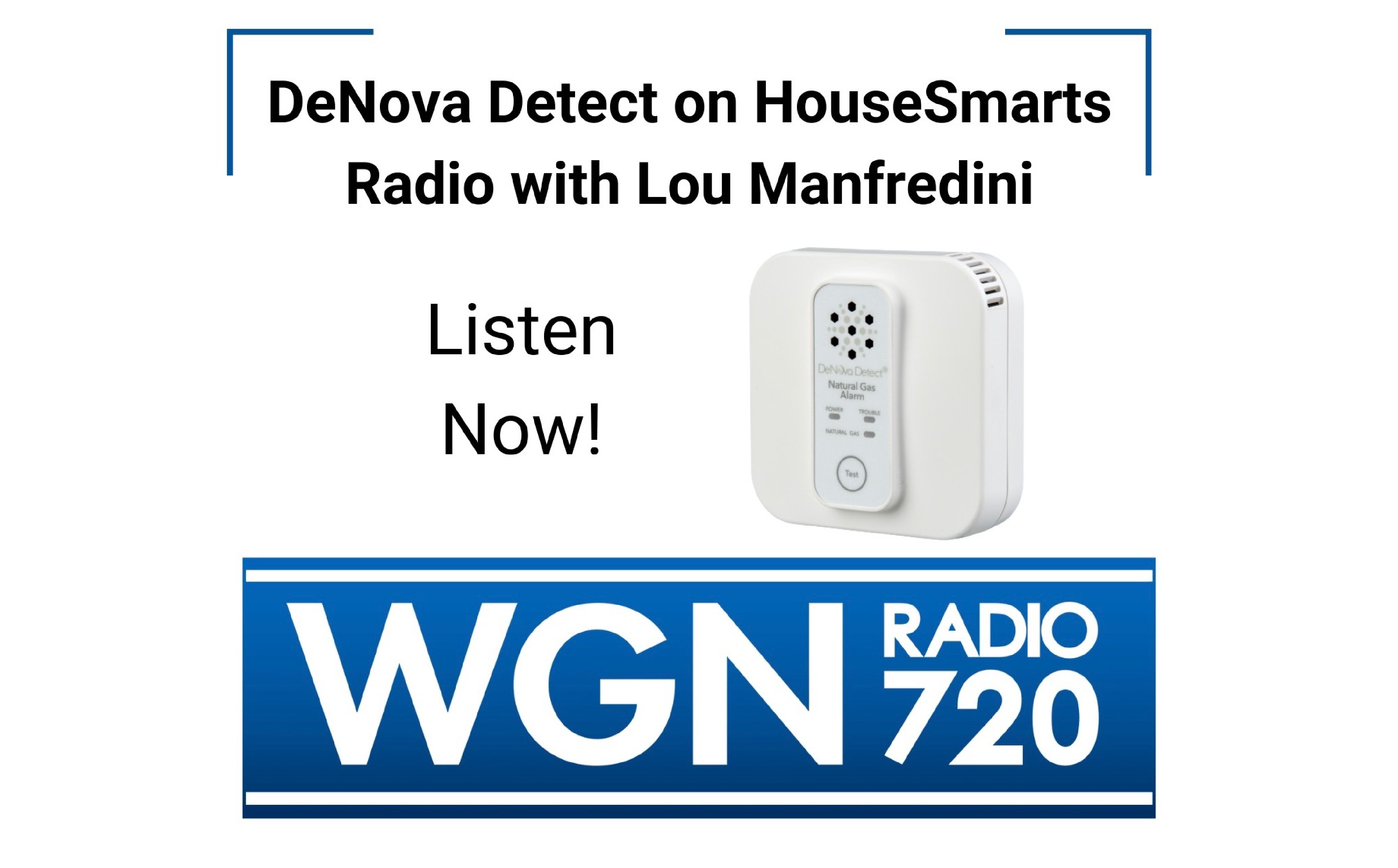- The smart meter installation mentioned below is only for the alarms used by utility providers. The consumer DeNova Detect alarms here (including the new 10-year alarm) do not require smart meter installation to alert residents and advise them to call 911. The voice alerts in English and Spanish are standard product features for all of the DeNova Detect gas alarms.
Q: If this is the case, how would a resident be able to obtain the utility provider alarms from their utility provider (in this case Con Edison)?
- Con Edison is currently offering alarms to Con Edison customers FREE of charge in Manhattan and Westchester counties.
Q: How would they know if they were scheduled to receive one?
- Con Edison contacts each customer in the Manhattan and Westchester counties to schedule an appointment for the alarm to be installed.
Q: Is it part of the proposed law that residents would have these devices installed at a certain point?
- The new NYC LL157 law does require natural gas alarms to be installed by May 1, 2025 in every location a natural gas appliance exists. This can be a kitchen with a natural gas stove, laundry room, living room with a natural gas fireplace, a water heater, etc.New York residents should be aware that utilities are not required to provide these alarms for customers, so it’s important to proactively protect yourself and your property by investing in a 100% battery-powered natural gas alarm now to protect against deadly natural gas explosions.
Q: Would there be a cost to the consumer for the utility-provided alarms, either directly or from the utility company (such as an installation service charge)? If so, what has this cost typically been?
- There is no cost to Con Edison customers for the provided alarms in Manhattan and Westchester counties. However, Con Edison is only providing one gas alarm per home. Many times, multiple gas alarms are essential to stay safe. Remember, a natural gas alarm should be installed in every room where a natural gas appliance exists.
Q: If these are available already through Con Edison, is it something a consumer can request to have installed?
- See answer above
Q: Depending on your answer above, if a consumer is unable to request that one of these specialized smart devices be installed by the utility, is there a blanket recommendation to install several consumer grade readily available alarms, in lieu of no alarm at all? In other words, is this something that everyone should already have, and if they don’t have one, they should get one?
- If you want to stay safe, you really need a 100% battery-operated natural gas alarm to protect life and property. Natural gas explosions can cause deaths, injuries, and major property damage, but they are completely preventable with natural gas alarms. If you have gas appliances in your home, such as cooking appliances, clothes dryers, water heaters, furnaces, and gas fireplaces, a natural gas alarm should be installed in every room where a gas appliance exists to protect your home and loved ones. If natural gas alarms are not provided by your local utility, DeNova Detect’s consumer alarms are now available at Lowes.com and in select Lowe’s stores in New York, as well as at DeNova Detect’s website www.denovadetect.com
Q: Is there an ongoing public information campaign about these devices, considering the statistics you mentioned in the original release, similar to the campaigns in the past about smoke and carbon monoxide alarms?
- Yes, DeNova Detect works with local fire departments and lawmakers nationwide to educate Americans about natural gas safety. As a growing number of states and municipalities are considering laws requiring natural gas alarms to keep people and property safe, DeNova Detect regularly participates in community education and media events to emphasize the importance of natural gas safety.Read more about their recent initiatives on PR Newswire here: DeNova Detect Teams Up with Local Fire Departments and Lawmakers During National Fire Prevention Week to Promote Natural Gas Safety AwarenessAnd on their Newsroom page here.In 2024, DeNova Detect will continue to lead gas safety public information campaigns, including the importance of Carbon Monoxide safety, as they launch their new 10-Year 100% Battery-Powered Natural Gas + Carbon Monoxide Alarm.
Additional questions about the alarm product available via the utility provider:
Q: How does the detector connect wirelessly to the natural gas department?
- Learn more about DeNova Detect’s wireless gas leak detectors for utility providers and DeNova Detect’s partnership with Con Edison New York here
- As was successfully demonstrated with Con Edison in New York, the DeNova Detect alarms were integrated into Con Edison’s advanced metering infrastructure (AMI) network.
- The natural gas alarm’s signal is sent through the smart electric meter to the utility’s response center that alerts and dispatches an emergency response.
- When the alarm senses natural gas, it sounds a distress signal and a voice warning that advises occupants to evacuate and call 911 from outside the building.
- The building’s alarm communicates readings of natural gas levels every 30 seconds when in alarm mode. The utility uses this data to update emergency responders in real-time about the location and severity of the leak.
- The DeNova Detect alarm signals are sent out automatically to the utility to alert the first responders. These alarms are resilient to being set off by typical household chemicals, limiting the potential for false alarms.
- Yes, the alarm has a 10-year battery life. Specifically, it’s a lithium metal battery. Our exclusive MEMS gas sensor technology provides the most power-saving energy available for extended battery life and added cost savings.
- The alarm is powered solely by the battery. Since it is strictly battery powered, there is no “amount of power used” in terms of AC-power or electricity costs/bills. Also, since the unit is powered by an internal battery, the natural gas detector should continue to function during a power outage.
- No, the DeNova Detect natural gas alarm does not cause interference with other electronics.
- Gas leaks may migrate along pipes, so consideration should be given to place gas alarms in multiple rooms. The DeNova Detect Natural Gas Alarm should be installed in all rooms where a gas leak may occur or a gas appliance is located.
- Examples of where to install natural gas alarms:
- Kitchen (gas leaks from gas ovens and cook tops)
- Laundry (gas leaks from a gas clothes dryer)
- Furnace area (gas leaks from furnace burners, water heaters or boilers)
- Gas Fireplace
Below find the original release about the DeNova Detect product:
- Natural gas explosions continue to rise in New York and across the country. A new natural gas explosion occurs every 40 hours, and the approximately 300 natural gas explosions occurring each year cause deaths, injuries and property damage.
- In New York, since 2006, 244 people have reportedly been injured and 32 have died as a result of natural gas explosions.
- Homeowners understand the importance of smoke and carbon monoxide alarms, but many are unaware they also need natural gas alarms to be fully protected.
- DeNova Detect is raising awareness around natural gas safety by working directly with legislators and fire service leaders in New York State.
- Maine became the first state to require natural gas alarms in 2022.
- Today, New York has similar legislation pending. If passed, State Bill #S3705 would require all temporary and permanent dwellings in the state to install an operable combustible gas detector that wirelessly connects to the gas company and require gas companies to release an annual report of the frequency of gas leaks by county.
- First and only 100% battery-powered, 10-Year natural gas alarm listed to UL1484 safety standards
- Proven to detect natural gas leaks 11 minutes sooner than other alarms
- Protection for less than three cents a day and no hidden electricity costs or battery replacements needed
- Only alarm that offers the best placement near the ceiling where natural gas rises and accumulates first
- Voice alerts in English and Spanish announce the type of hazard and instructions to evacuate, and then call 911
Source: StatenIslander.org





Leave a comment
This site is protected by hCaptcha and the hCaptcha Privacy Policy and Terms of Service apply.